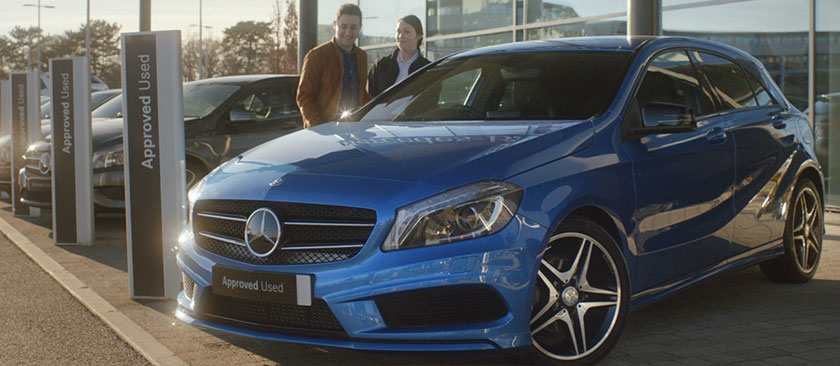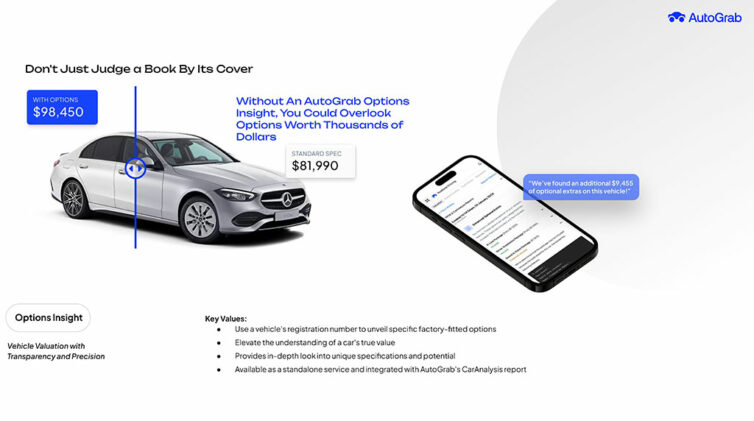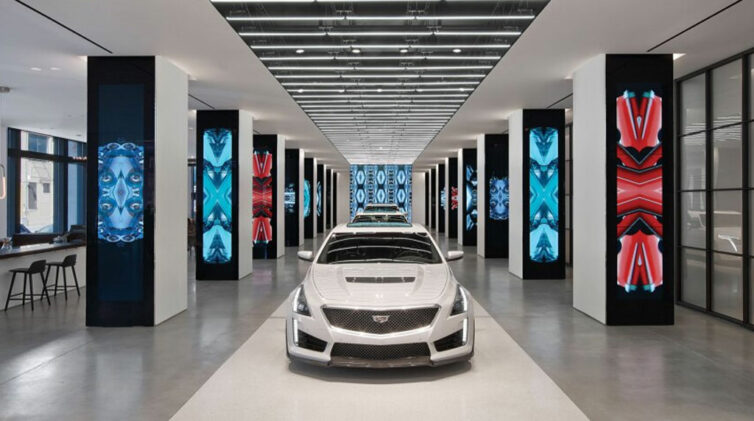Mercedes-Benz UK CEO, Gary Savage, said he foresaw the day that this will occur but added that it would not be a threat to dealers.
“In reality, to genuinely be able to realise online selling, you have to do it direct,” he said.
“Because of all the components of competition law, you have to be in a position where you can set the selling price, in order to offer the customer the best price consistently.”
But while Mr Savage said he believed direct sales were the way forward, his comments were at odds with Mercedes-Benz, that has been selling its global factory-owned dealerships.
The last sale was last month when the two outlets in Melbourne owned by Mercedes-Benz Australia/Pacific (MBAuP) and sold to Chinese conglomerate Lei Shing Hong (LSH).
LSH now owns four Mercedes dealerships in Australia. It has 192 Mercedes outlets around the world, many of which have been purchased from the factory.

However Mercedes-Benz maintains a strong retail presence in London. The company began building its own dealerships a decade ago under the name Mercedes-Benz Retail Group (MBRG) when the cost of the real estate required to provide a strong market presence moved beyond the reach of dealers.
MBRG consists of 14 retail sites, four used-car sites and nine smart centres across the North and South of London
Mr Savage told AM-Online that he wanted to be a “deliberate catalyst” with the Mercedes network, so that more of its dealers will think about the other opportunities in store.
“Very few people in my experience are prepared to have an honest conversation with their retailers to say ‘look, the opportunity for new-car margin to return to what it might have been is relatively narrow, so we have to accept the new-car margin is now driven by the multiple rather than the sum itself’.
“I’m confident that our network can operate there, because we actually have enormous experience of selling direct, because we have the direct sales programme for the contract hire and leasing company.”
Australian Automotive Dealers Association CEO, David Blackhall, said the issue was not on the agenda of OEMs in Australia “as far as we can discern”.
“The comments from Gary Savage are not all that surprising,” Mr Blackhall said.

“Manufacturers – particularly certain European makers – have been in a limited form of the direct sales business for years through their ownership of sometimes substantial proportions of their dealer networks.
“They are already trialling variations of direct retail models all over the world.”
Mr Blackhall said that “anyone who says that they can predict where these initiatives will land is deluded – it is far too early in the disruption cycle to know”.
“However, I am prepared to say that my long experience suggests that entrepreneurial dealers will find a way to remain vital to manufacturers, albeit in different numbers, with different assets and vastly different skill sets.
“It is possible to imagine online assets that handle most of the customer journey down the purchase funnel, with centralised hubs for physical delivery or collection of vehicles and for whatever limited services are needed in a future world populated by mostly 100 per cent new electric vehicles.
“In a country as vast as Australia, the ‘delivery hub’ model does leave some important questions unanswered, so there would probably be the need for tactical variations that retain portions of the distributed network intact.”
Mr Blackhall said the virtual world can replicate much of what we do today physically but “there are real difficulties around the emotional connection many consumers want to experience during the purchase of their car”.

“Consumers want a connection that translates into strong positive feelings about the purchase decision and the delivery of value and surety around future benefits and usage,” he said.
“Dealers play a personal, paramount role in this regard. Dealers will continue to exist and will succeed in the future by adroitly combining the emerging smaller-footprint model with deep understanding of their consumers – and adjusting their processes accordingly.”
Direct sales have always proved tempting to car-makers.
Tesla currently runs a direct sales model, owning its own retail outlets worldwide, but it has yet to be seen how the cost of that model eventually plays out on the company’s bottom line.
In the late 1990s, Daewoo established a factory-owned retail chain via “motor shows” in well-decorated and fitted-out warehouses in major UK cities. Vehicle displays were erected in supermarkets and cars were serviced through Halfords – a national all-makes service franchise.
It came unstuck because Daewoo adopted a hugely aggressive advertising program that played to all the negative prejudices car owners had about car dealers.
Dealers were so incensed that they refused to trade-in Daewoo cars. Given that it turned out you only ever owned one Daewoo, the factory was forced to buy back its used cars but were not getting an ongoing sale. The cost financially suffocated the operation.
In the US Daewoo tried selling cars on university campuses with students acting as commission agents.
Ford famously formed joint retail ventures with their dealers in the late 1990s. Some became spectacularly successful while others, especially in Australia where the company paid too much for the dealerships, less so. Despite some ultimate success in the US they were unravelled by Ford because of a massive dealer backlash.
The concept was established in Australia in 2000 and finished in 2005 with analysts saying it was not given enough time to mature.
But it was also criticised for carrying Ford’s bureaucratic work ethics – that were designed for a very large corporation – into the showroom environment that had little ability to mask its inefficiencies and inabilities to be flexible.
Referring to Mercedes-Benz retail operational experience in the UK, Mr Savage told AM-Online that Mercedes-Benz has directly sold 35,000 cars in the UK.
“There’s a team here that ordered those cars, invoiced those cars and our retailers enabled that to happen by providing the test drive, the delivery, the handover, the whole experiential part of the sales process, and they got a handling fee for that,” he said.
“It’s not so many years ago that they had their full retailer margin for that business, but that has gone to a handling fee. Now it’s a very viable part of the retailers’ business.”
Direct sales would also require a change to the “myopic obsession” with hitting a monthly target, he said, because sales would have to be much more driven by consumer pull than manufacturer push.
Mr Savage said he believed it would also bring an end to manufacturer-imposed new-car targets, because these would not be in the spirit of an agency contract.
He added that he also believed major brands such as Mercedes-Benz would need to streamline their product ranges. While he doesn’t want them to cull model lines, he said he thinks it would be necessary to reduce the number of trims and configurations, to make decision-making easier for consumers.
“We often have our head in the sand about change,” he said.
“The way people buy cars hasn’t evolved, but in reality there’s been a lot around the edges. But I think change is coming.
“We’ve got to accept in the end that we look at this often from the perspective of the manufacturer, the wholesaler and the retailer. We’ve got to look at this from the customer’s perspective.
“Everything else can be purchased on their terms and at their convenience.”
He also said new approaches should be trialled by individual franchises, though cautioned that one model may not fit for every dealership.
“Those new approaches include removing sales desks and introducing product experts – there are now 150 across the UK Mercedes network – and the use of temporary stores to put the cars in front of shoppers,” he said.
“The ‘pop-up’ stores attracted 600,000 visitors last year, and have led to new and used car sales,” he said in the AM-Online interview.
By Neil Dowling and John Mellor













 Read More: Related articles
Read More: Related articles

